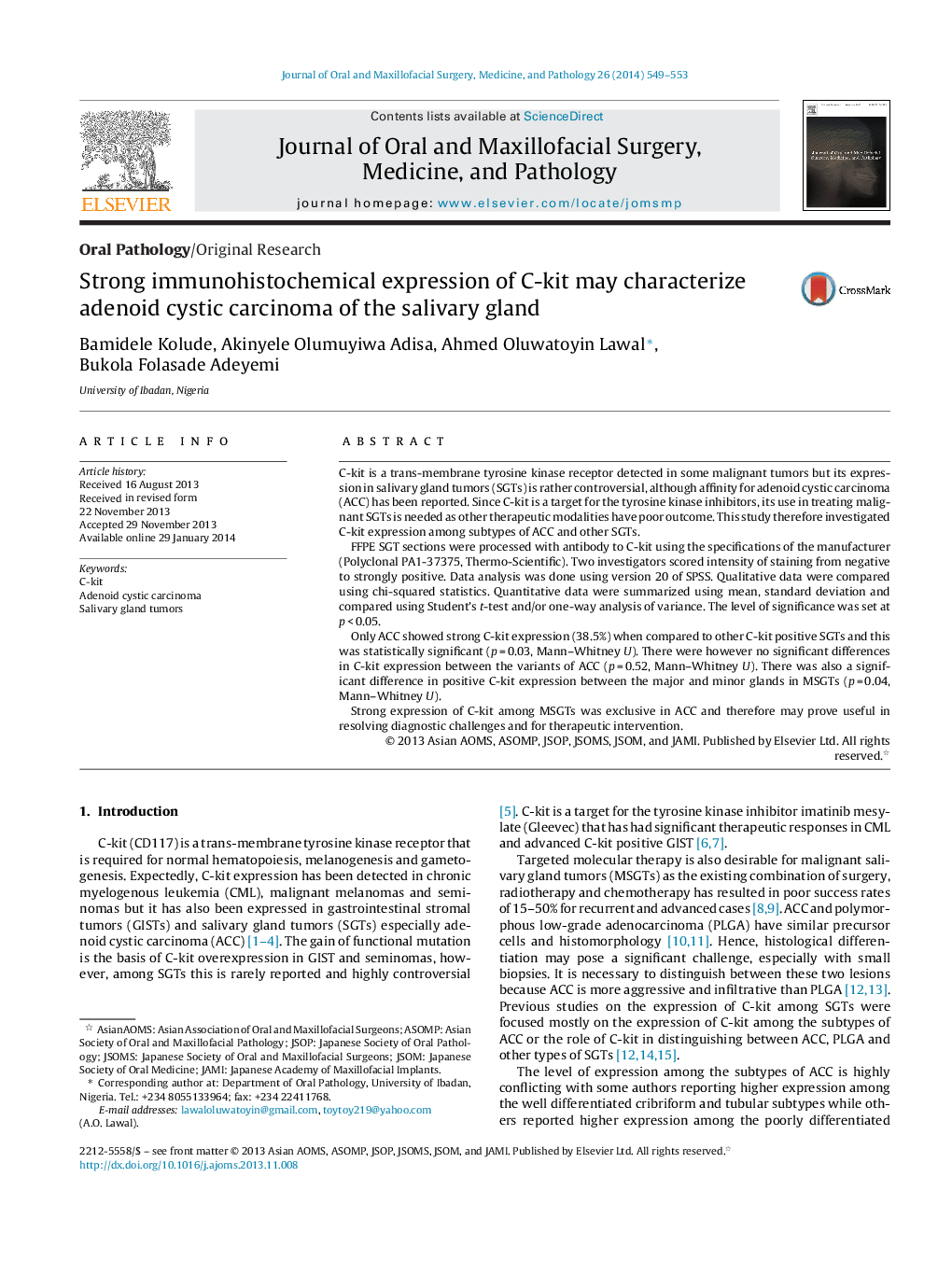| Article ID | Journal | Published Year | Pages | File Type |
|---|---|---|---|---|
| 3159859 | Journal of Oral and Maxillofacial Surgery, Medicine, and Pathology | 2014 | 5 Pages |
C-kit is a trans-membrane tyrosine kinase receptor detected in some malignant tumors but its expression in salivary gland tumors (SGTs) is rather controversial, although affinity for adenoid cystic carcinoma (ACC) has been reported. Since C-kit is a target for the tyrosine kinase inhibitors, its use in treating malignant SGTs is needed as other therapeutic modalities have poor outcome. This study therefore investigated C-kit expression among subtypes of ACC and other SGTs.FFPE SGT sections were processed with antibody to C-kit using the specifications of the manufacturer (Polyclonal PA1-37375, Thermo-Scientific). Two investigators scored intensity of staining from negative to strongly positive. Data analysis was done using version 20 of SPSS. Qualitative data were compared using chi-squared statistics. Quantitative data were summarized using mean, standard deviation and compared using Student's t-test and/or one-way analysis of variance. The level of significance was set at p < 0.05.Only ACC showed strong C-kit expression (38.5%) when compared to other C-kit positive SGTs and this was statistically significant (p = 0.03, Mann–Whitney U). There were however no significant differences in C-kit expression between the variants of ACC (p = 0.52, Mann–Whitney U). There was also a significant difference in positive C-kit expression between the major and minor glands in MSGTs (p = 0.04, Mann–Whitney U).Strong expression of C-kit among MSGTs was exclusive in ACC and therefore may prove useful in resolving diagnostic challenges and for therapeutic intervention.
